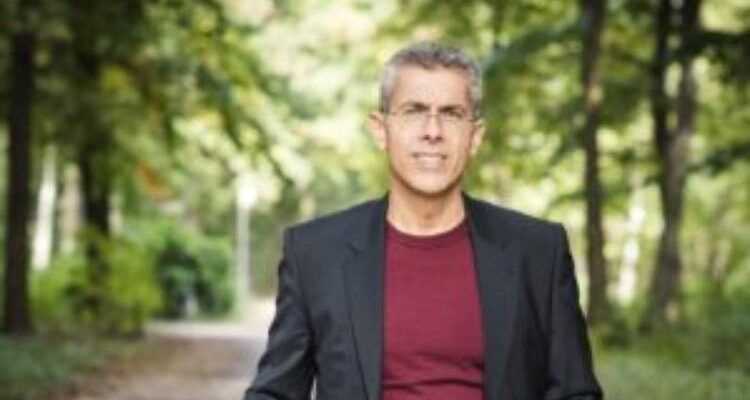Sustainability is one of the most important challenges facing the economy. Their biggest fear is that growth will fall by the wayside. HypoVereinsbank board member Michael Diederich is a member of the new advisory committee “Zukunftsweise”. He explains why this is not the case. And why Covestro and BMW are shining examples.
Mr. Diederich, you are talking to dung riders from business and science in a paper from “Germany’s Future Ways“for more sustainability. The aim is to ensure” an economic miracle 2.0 “- what does that mean?
Michael Diederich: No matter who you are talking to at the moment: sustainability comes first. It is the overriding theme. This naturally raises the question of how an industrial nation like Germany deals with the issue. Because that affects every branch of industry, every sector – at all levels and of all sizes.
What do you mean?
Let’s take a somewhat bulky example: the supply chain law. For a product, a company has to look at the entire supply chain and check it for sustainability. Conversely, this also means that one has to deal with the question of how to rebuild a value chain, production processes or sourcing in such a way that they meet future sustainability requirements.
And what does that have to do with the “economic miracle 2.0”?
As an industrialized nation, Germany must recognize that sustainability will create opportunities for future economic growth if we think new and forward-looking production processes and chains, if we reorganize materials research, if we include universities. Made in Germany has been very important for the past 30 years – it would be even more important that it stay that way.
Can growth ever be green?
I think so. In the future, we will have to focus on the circular economy. Take a look at Covestro: The company has now invested a billion euros in the question of how to make plastic from renewable raw materials. Or take a look at BMW. Their plan is to manufacture the entire fleet of automobiles from recyclable materials by 2025. These two examples show that this is certainly a different way of doing business than we know it today. But it’s also growth.
In your opinion, what are the adjusting screws that we as a society need to turn?
I believe we need a positive narrative. I often experience this when talking to smaller companies. When it comes to sustainability, the first thing that comes to mind is administration – additional costs, lower profit margins and thus a loss of competitiveness. You can see it that way, of course. But you shouldn’t. I always try to compare that with another area: When we talk about digitization, everyone has certain beacons in their heads, these are companies that have completely digitized and rebuilt their models, that have successfully digitized their value chains and production processes. So we need a similar narrative when it comes to sustainability: It doesn’t necessarily have to be expensive, it doesn’t necessarily mean costly administration, it doesn’t mean the loss of profit margins or competitiveness.
Why are these lighthouses missing?
I think a lot is happening out there. And many companies started paying attention to sustainability before it was even an issue. They say: As a family or as shareholders, we stand for our sustainability. They made sure that products were not made through child labor, that certain chemicals were not used in the clothing industry, such as cotton was picked. Now comes the issue of climate protection.
They say a lot has already happened – but CO2 emissions are increasing every year. How do we change that?
Let’s take a look at what the EU is up to with its climate taxonomy – the world’s first system for the uniform classification of sustainable economic activities. This will also change the statutes of institutional investors, in what kind of companies that still invest at all. Whether it is the EU Commission in Brussels, whether it is the ECB or local politics – more and more accents are now being set, a framework is being defined for what one wants to achieve. The entrepreneurs out there will inevitably wonder what that means for them. And if a non-sustainable company can no longer be financed on the capital market, it will have to change.
Does that also apply to banks like yours?
Naturally! And in two directions: on the one hand, we have set ourselves ambitious sustainability goals. We want to make all of our internal processes paperless by the end of 2023. And we have already achieved great success in reducing our carbon footprint, to name just two examples. On the other hand, we also pay attention to our portfolio: We also evaluate the companies to which we give loans according to sustainability criteria. What we don’t do, however, is no longer work with companies that are not yet sustainable today.
Why not?
Because we rather ask ourselves how we can support such a company through transmission towards more sustainability and green growth. It’s about creating the framework for change.
How do you support companies on their way to more sustainability?
As a bank, we have our own team of consultants in the market who scrutinize precisely these aspects for all financing issues. We have developed an instrument for this, the so-called ESG industry barometer. This is precisely about the following questions: What is the status quo in terms of sustainability and CO2 emissions of a certain company in a certain industry? Only in this way can we develop an understanding of what needs to be done and in which direction we have to go. The next question then is: How did the company improve in the following year?
The ways of the future are another group that is supposed to advise companies and politicians on sustainability. What is the difference to other bodies?
I don’t see myself as a political advisor. Rather, I would like to give food for thought together with like-minded people. We want to share our practical experience. The group is interdisciplinary. There are people who come from industry, others come from science. And we have people like me who are intermediate between the capital market and investment. So I think we can say from many different angles what the relevant parameters are now to move this nation forward.
With Maja Göpel, at least one member of the group is thinking openly about “turning to less”. Is your position on green growth compatible with this?
What really helps against climate change? Klima-Labor is the ntv podcast in which Clara Pfeffer and Christian Herrmann scrutinize ideas that sound great, but which are not always entirely clear as to how useful they really are. Should we feed cows with seaweed? Equip cargo giants with large sails? Green hedge funds appointed to supervisory boards?
The ntv climate laboratory: Listen to it every Thursday – half an hour that informs and is fun. On ntv.de, in the ntv app and wherever there are podcasts: Audio Now, Apple Podcasts, Amazon Music, Google Podcasts, Spotify, RSS feed
I cannot speak for others. But in our discussions I didn’t get the impression that we were that far apart. What I want to convey is that the topic of sustainability and a change in industrial society should not be equated with renunciation or prohibitions. And I see that there is a rethinking in very many organizations – after all the growth and all the environmental pollution, many now see the need to act differently.
How will the outcome of the coalition negotiations affect the initiative – is there an outcome that you prefer?
I think that every possible coalition will make the issue the central building block of their policy, with slightly different approaches, of course. Something else is important.
What then?
That we can reach the people. It’s easy to say that when you happen to be not the owner of a foundry, you want to stand up for sustainability. Then they have to translate the call for more environmental protection into a specific question: What does that mean now? What does that mean for me, for my responsibility, for my production process? Where can I get CO2-free steel? How can I, as an energy-intensive company, be part of the change? So we see that there is a lot in the room that has not yet been answered.
Can the future ways provide answers?
In any case, I believe that it is important, time well invested, to ask yourself these questions. Some companies will find it easier than others. But if you are a mechanical engineer, run a steel foundry, and generally work in the metalworking industry: then you cannot simply switch over to your operation from now on.
Does that mean we’re just getting started?
As I said, a lot is already happening. But first we have to agree on a common language.
Please explain that.
What is the data structure with which, for example, we as a financing institute can assess whether a foundry is more sustainable today than it was a few years ago? In the future, for every single commitment, for every single product, for every single customer, we will have to define how we measure improvements. In the end, we also have to be able to say that we as a bank have worked with the right companies.
Bastian Hosan spoke to Michael Diederich.
The interview appears first at Capital.de.

